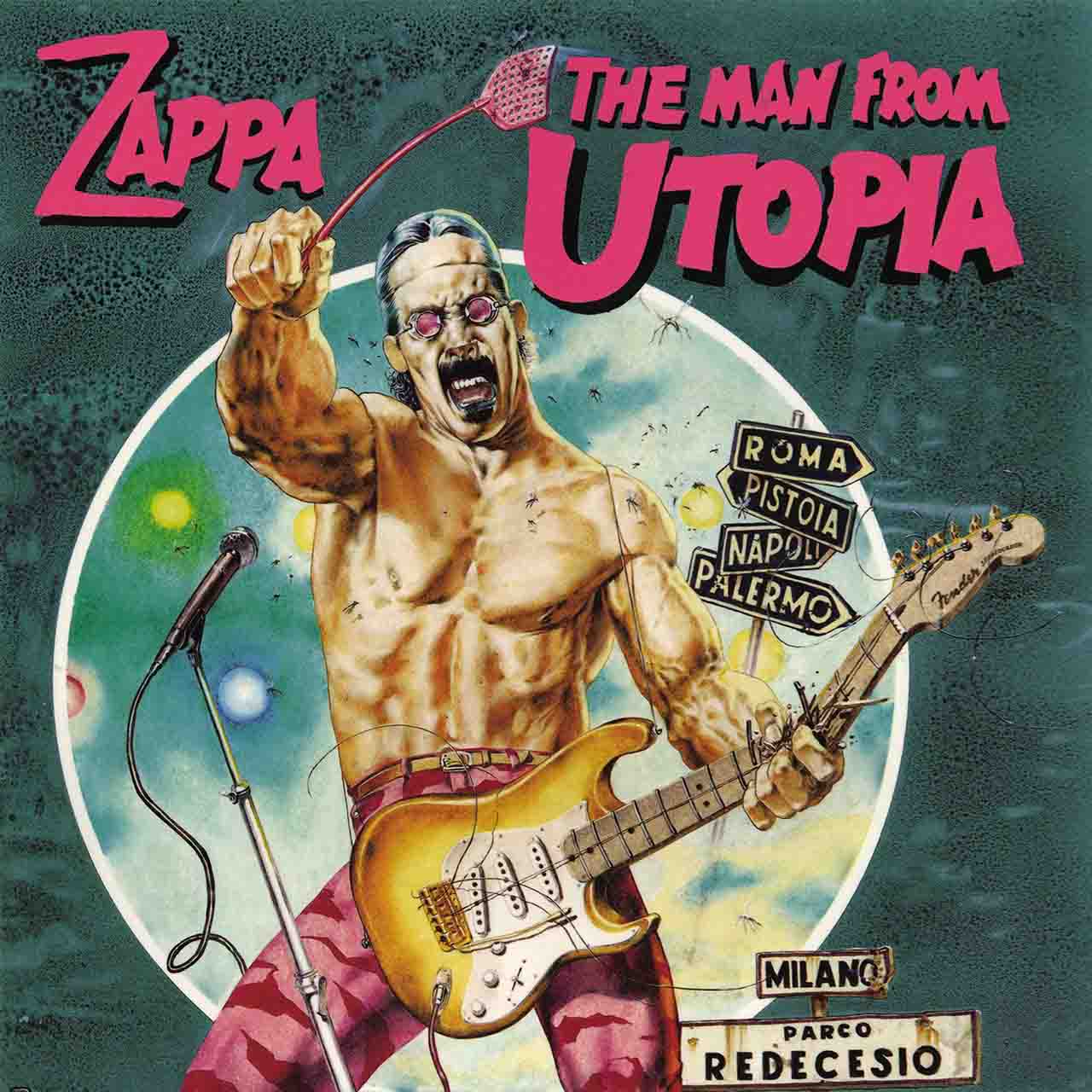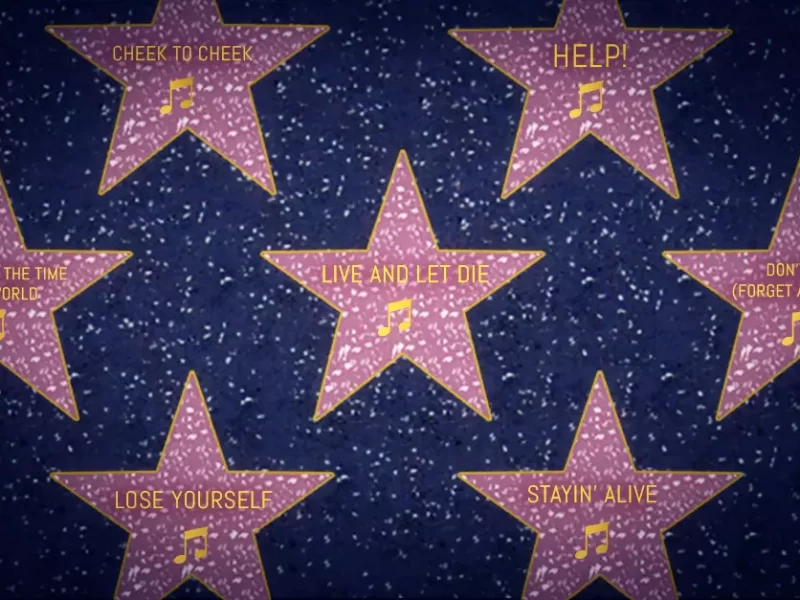Released in March 1983, The Man From Utopia arrived at a turning point in Frank Zappa’s career. It was the first album after the biggest hit of the composer’s career to date, the “Valley Girl”-assisted Ship Arriving Too Late To Save A Drowning Witch. Zappa could very easily have dumbed down, cranked out another novelty hit, and scored another big-selling album. Instead, The Man From Utopia was uncompromising, experimental, and divisive in equal measures.
Though he’d poured scorn on users of psychedelics in the past, opening track “Cocaine Decisions” was Zappa’s most direct takedown of drug use yet. The track is Zappa at his most straightforward – a pummeling drum track, bluesy harmonica licks from Craig ‘Twister’ Steward and unfussy keyboards and bass – it’s as if he was keen that the music didn’t detract from his lyrics. Zappa takes aim at high-powered cocaine users, suggesting that the drug impinges on decision-making and that those partaking in substance abuse do not consider the consequence of their actions.
Listen to Frank Zappa’s The Man From Utopia now.
In an interview with Music in 1985, Zappa elaborated, “OK, you’re a teenager, and you want to have a good time, you go out, and you get high. No, no, that doesn’t bother me so much. What bothers me is, you’re a brain surgeon, and you’re using cocaine, and you may operate on somebody one day, and they’ll die. Or you’re a Supreme Court justice, and you’re going to pass a law that is going to affect life in the United States for the next 200 years, and you’re doing it under the influence of drugs… It’s not just kids who are using the stuff, it’s people who are involved in life-and-death decisions for large numbers of people in this country. Whether it’s a corporate executive, or whatever, their decision to do something, if it’s chemically based, is going to affect the quality of everybody else’s life, and that’s what ‘Cocaine Decisions’ is all about.”
While the hard-hitting and sardonic “Cocaine Decisions” was Zappa showing his quality as a lyricist, elsewhere on the album “SEX” and “The Jazz Discharge Party Hats” demonstrated a tendency to veer towards the salacious. Zappa often stated that he saw his job as a lyricist as reportage and was simply saying things as he saw them. “I don’t think I’m getting more cynical,” he’d later say. “I’ve just got more evidence to back up my cynicism. Where in the past I might have only guessed that people were horrible, today I can prove it.”
The lyrics of “The Dangerous Kitchen,” meanwhile, showed that Zappa really could write about anything, investing a subject matter as mundane as the foodstuffs of a kitchen with intrigue. He expanded on the subject matter onstage in Albuquerque in October 1980, “It’s a tragic tale of what happens when you come home late at night to your house and you go in the kitchen and get something to eat and find out that somebody has left this total mess all over the place. It talks about the soft things that you step on on the floor that you don’t know what they are, and the meat, you know, wrapped up in paper that’s sitting out on the counter and the cats get to it and they have torn a hole in it and there’s this stuff hanging out. And the stuff in the strainer that has a mind of its own.”
The version of “The Dangerous Kitchen” on The Man From Utopia has an overdubbed electric guitar from Steve Vai that follows the improvised lead vocal. Zappa was fulsome in his praise of Vai in a 1982 Guitar World interview, “I feel comfortable playing with Steve Vai, I mean, I like the way he plays. I think he’s really a great guitar player. He does everything on the guitar that I don’t do. He does all of the stock Stratocaster noises and he makes everything that Van Halen ever dreamed of and then some. He reads music. He plays sixteenth notes which I don’t play. And he does all of this stuff that I don’t do; and I think that our styles are kind of complementary.”
The Vai and Zappa partnership was also essential to the album’s stand-out track, the instrumental piece “Mōggio,” which pointed towards the complex and nimble pieces on 1986’s Jazz From Hell. Vai would later tell Guitar Player about the origins of “Mōggio,” “It was arranged with really nice, beautifully arpeggiated chords with odd meters in it. But there’s one great thing about the way Frank writes odd meters. As far as I’m concerned, he doesn’t just write odd meters for the sake of writing odd meters. If something is in an odd meter, it’s the effect he wanted. So this song started out with the arpeggiated chords, and then it went to a guitar solo, and then it went back to the arpeggiated chords, with a big, long melody on top of it. And the melody’s really tough, but it’s nice. The only thing that’s in the final mix of the album is the melody. Frank just sliced the melody off and put it on the record.”
And that unusual title? It was inspired by Zappa’s daughter Diva, as the composer told Society Pages in 1990, “One day, when Diva was real young, she crawled into bed with us… As I got into bed, she was just waking up, and she was telling me about this dream that she had, that she had a tiny, little father named ‘Mōggio’ who lived under the pillow, and went on with all this stuff, y’know, and gave me a complete scenario about this character that she was familiar with. So that’s where the thing came from. Then, I found out a couple of years later, that one of the bus drivers, in fact, the driver on the ’84 tour, that was his name! [laughter] His last name was Moggio!”
Listen to Frank Zappa’s The Man From Utopia now.



